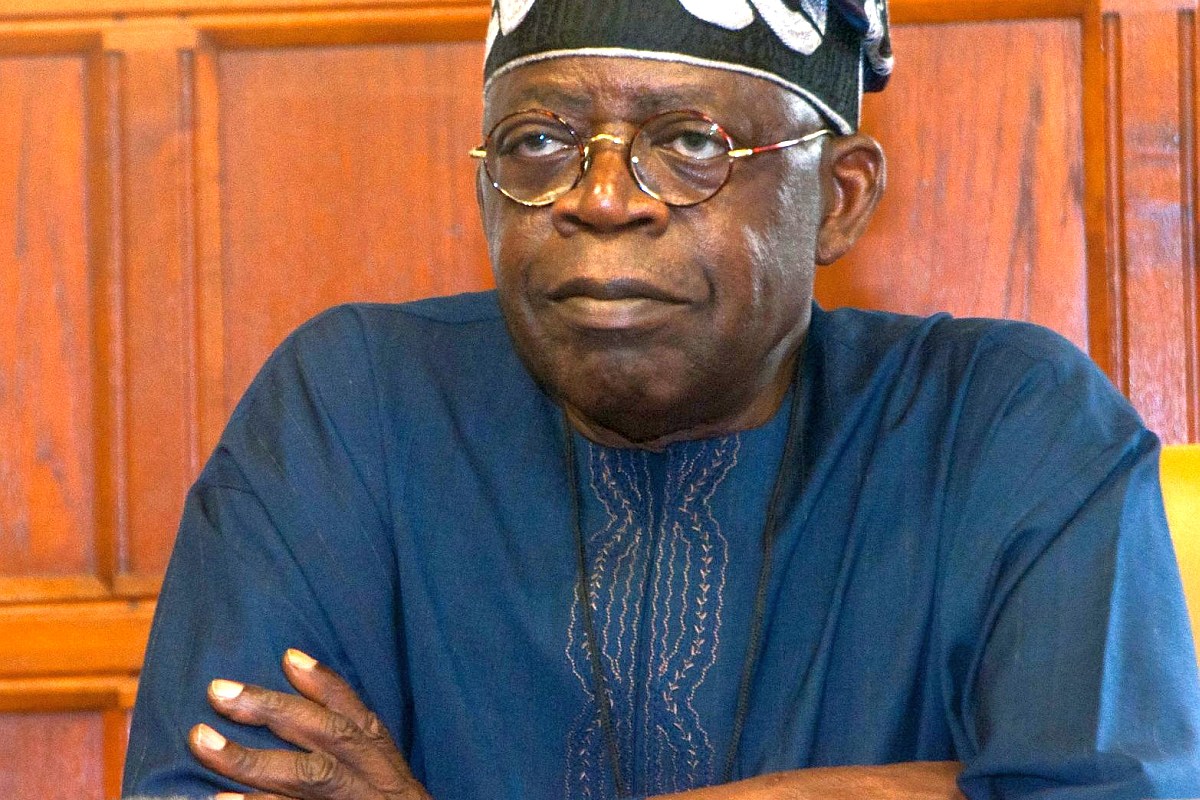Increase Beneficiaries Of Anti-poverty Stipends — Tinubu
Increase Beneficiaries Of Anti-poverty Stipends — Tinubu
All Progressives Congress (APC) National Leader, Asiwaju Bola Tinubu, wants increased stipends to the poor to cushion the effects of coronavirus.
This is one of the nine measures Tinubu proffered to tackle the virus that is ravaging countries across the world in his Easter message titled, ‘Tackling the Economic Challenges of Coronavirus’.
“We must be ready to increase stipends to the poor. We do this by widening the net, substantially increasing the number of recipients of anti-poverty stipends”, he said.
“I proffer these measures not as some comprehensive solution. I hope these ideas spark needed dialogue about the ways we may need to employ to protect our nation from assault by the coronavirus”.
He argued that government has unlimited ability and public duty to issue as much of its own currency as needed to quell shortage and buffer the populace from hardship.
“Fortunately we are not at the stage where we need to implement such strong measures; however, we should be preparing a response for that urgent moment may fall swiftly upon us”, the APC leader said.
The text of the message: Severe contractions Not only is the coronavirus a health and medical problem, it also has huge economic challenges.
China and the West face severe economic contractions. Cities are shuttered.
Multiply industries have closed. Millions have suddenly been rendered jobless. Supply chains have busted.
Economic activity is a fraction of what it was before. Deep recessions are forecast.
Some experts fear depression now tracks the world down. Governments worldwide are responding by embarking on unprecedented stimulus packages to keep their economies afloat. The Chinese are pumping untold trillions into their financial markets and productive economy.
The most austere large nation, Germany, casts aside its constitutional prohibition on deficit spending to enact a historic, unprecedented fiscal stimulus package.
The free-market Tory government of Boris Johnson has abjured his conservative upbringing, if but for this harsh moment.
His government has launched a fiscal stimulus unseen in the UK for decades. Likewise, the Bank of England vows to pump as much money into the financial market as is needed to unfreeze it and get it working again. The conservative Trump government also abandons its laissez faire ideology in the face of this exigency.
Trump is giving 2 trillion in fiscal stimulus and this will likely be just the first tranche. The Federal Reserve has announced an aggressive monetary policy to bolster the financial sector.
This is atop the 1.5 trillion the Fed already promised. In the end, do not be surprised if the US government injects over 5 trillion new dollars into the economy in the months to come.
This would represent 25 percent of last year’s GDP for that nation. Moreover, the US economy is also enacting various forms of debt moratoria such as forbearance on rental payments for struggling families and small businesses to tax relief of various types for companies large and small.
Preparing a response This is truly an eye opening endeavour based on lessons learned from the 1929 Great Depression when government failed to appropriately act and the 2009 Financial Crisis when governments acted in time. The lesson learned is that a government has the sovereign power and requisite duty to intervene in the economy in order to stave calamity.
To aid in this task, a government has the unlimited ability and again public duty to issue as much of its own currency as needed to quell shortage and buffer the populace from hardship.
Fortunately, we are not at the stage where we need to implement such strong economic measures; however, we should be preparing a response for that urgent moment may fall swiftly upon us. In doing so, we must be guided by the same lessons other nations have followed. When it comes to expenditures that can only be made in dollars, we must be extra careful.
Dollars now come at a steep premium. However, when it comes to expenditures that can be made in naira, government cannot afford to be bashful or reticent when the need arises. Already, the price of oil has fallen to around 32 dollars a barrel.
This will bring a dollar shortfall. This does not, however, necessitate a corresponding shortfall in public sector naira expenditures.
The US controls dollar issuance. We control naira issuance as is our sovereign right. While individuals, companies and even state governments can go bankrupt during hard times, the federal government cannot become naira insolvent because it has the ability to issue our national currency.
He who holds the printing press is never insolvent. The most serious concern and limitation on federal naira spending is not insolvency but inflation.
Consequently, should circumstances require increased spending, we should not hesitate to do so; but we must keep the watchful eye to ensure inflation does not climb too high.
However, to save both lives and livelihoods during a moment of historic emergency, a touch of extra inflation from enhanced government spending is a small price to pay. In fact, it is a price that must be paid. The alternative may be a harmful deflation which historically has proven more difficult to tame and cure than a small inflationary increase.
In all of this, the international financial institutions such as the IMF and World Bank must be cooperative and forward-leaning. These institutions must discard their mainstream orthodoxy of fiscal austerity which will straitjacket and injure nations like ours.
They must encourage nations to engage in economic stimulus. Moreover, they must suspend debt repayments for poor and developing nations and begin to fashion a plan of partial debt forgiveness for indebted nations.





